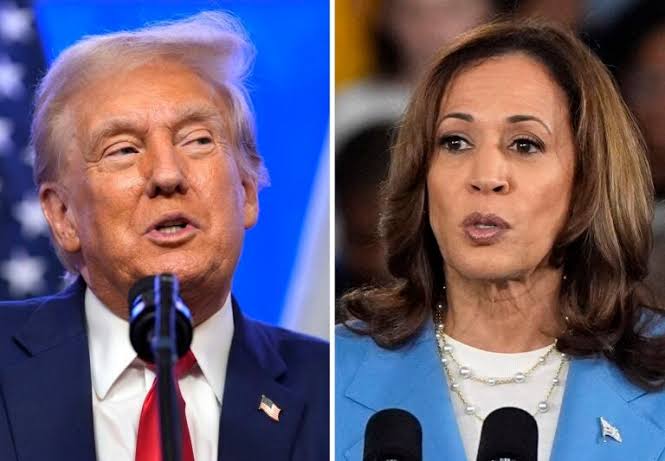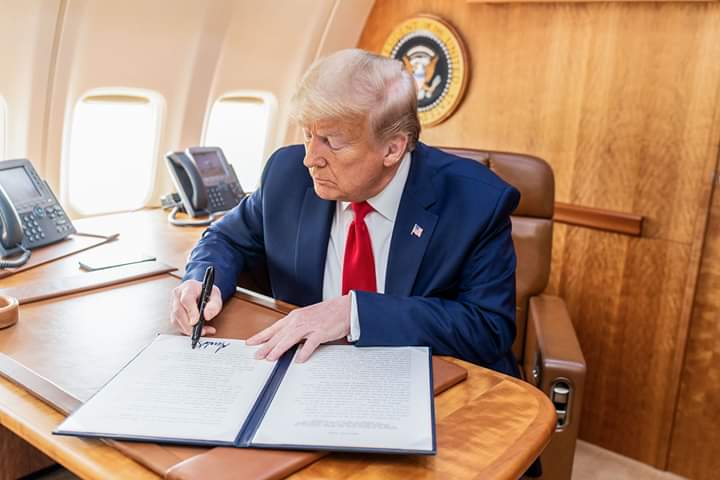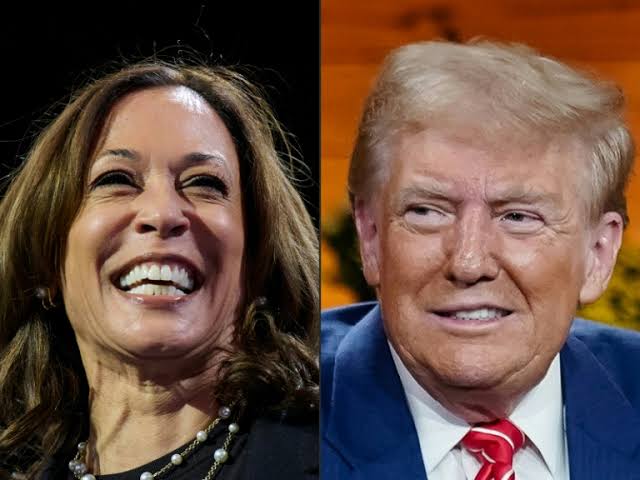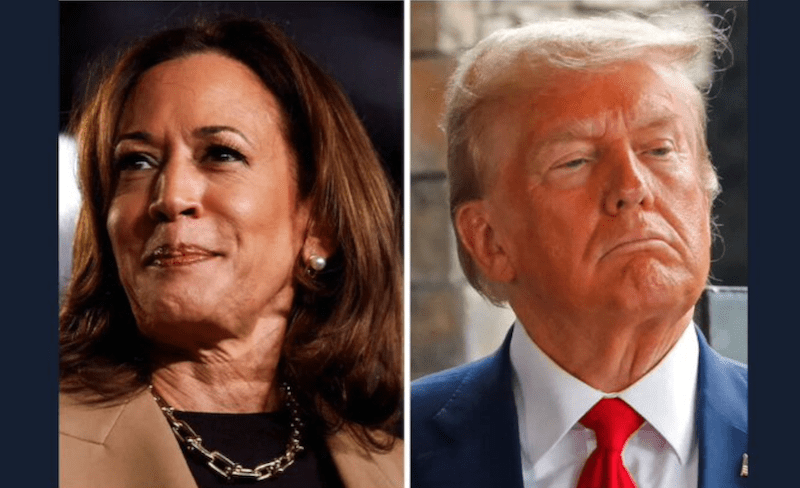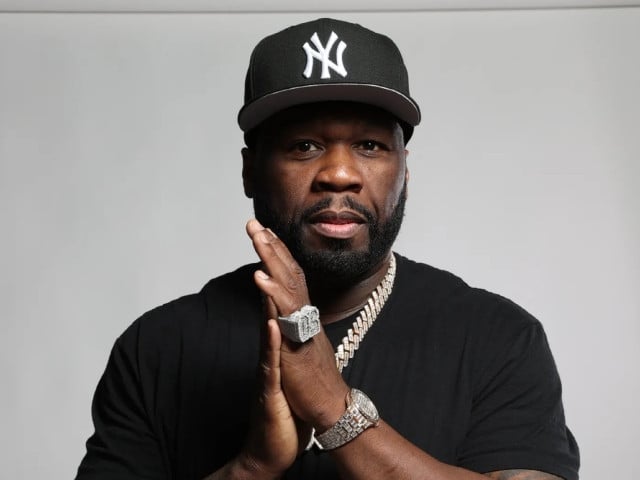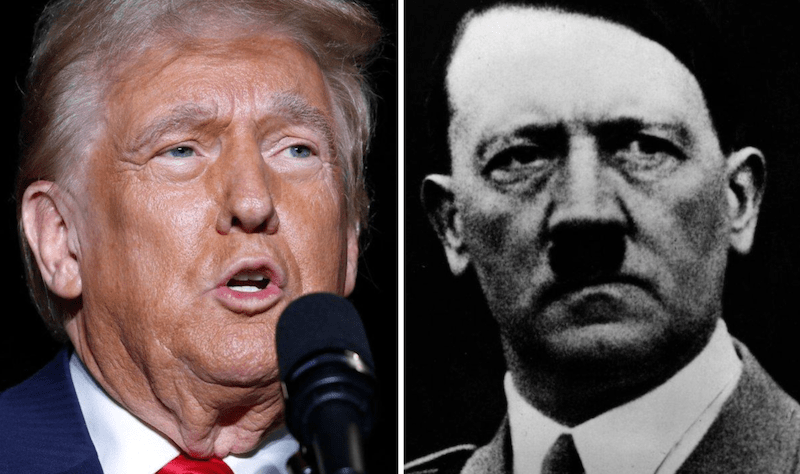The barrage of court trials and two assassination attempts that have characterized the 2024 Republican presidential candidate Donald Trump’s campaign were expected to undermine his bid for the presidency. Yet, like a cat with nine lives, Trump has not only prevailed in several court cases but also survived two assassination attempts—one during a campaign event in Pensylvania and another at his golf club in Palm Beach, Florida.
Despite these challenges, Trump has managed to overcome many of the obstacles designed to derail his quest to return to the White House in 2025. It is worth noting that Trump’s struggle is not unique; the Democratic National Committee (DNC) has also allegedly sought to use the judicial system to remove the independent candidate Robert F. Kennnedy jnr. from the ballot. Historically, no U.S. president has been convicted and sentenced to jail, but Trump was faced with 34 criminal charges and is awaiting sentencing. If not for his determined fight and the Supreme Court’s less aggressive stance, his political adversaries and the judicial system might have succeeded in keeping him off the November 5 ballot.
Before Trump’s legal troubles, the most severe challenge faced by U.S. presidents was impeachment, which typically resulted in the loss of a second term opportunity. Similar to the challenge Trump had to deal with, the independent presidential candidate Mr.Kennedy Jr.who is a former DNC member also faced political persecution from his former party which is a justification for his supporters believing that the DNC’s efforts to remove him from the ballot reveal deep divisions within the party.
On August 24, when he chose to withdraw his candidacy and endorse Trump, he expressed his frustrations about the DNC’s attempts to disqualify him from the race. Despite his legal challenges, Kennedy Jr. managed to navigate the complex political landscape before endorsing Trump. Unlike Kennedy Jr., Trump has faced legal convictions and two assassination attempts in just two months, likely exacerbated by the intense criticism from his opponents who view him as a threat to democracy. Only Gerald Ford 38th U. S president experienced two assasination attempts with a woman as the assailant.
I will discuss the attempts on Trump’s life in more detail later in this discourse.
Despite the numerous legal challenges and attempts to disqualify him, Donald Trump remains resilient and is still the frontrunner in the race for the 2024 presidential election, just under 50 days away. The conviction he faces involves alleged tax evasion and financial manipulation in New York, where many of his businesses are based. Trump dismisses these charges as a political witch hunt orchestrated by his rivals, a claim the U.S. Attorney General Merrick Garland has firmly denied.
This situation provides a troubling lesson for developing countries: the use of legal obstacles against political opponents, once thought to be a hallmark of third-world politics, is now becoming a feature in advanced democracies as well. The pattern of legal attacks against Trump, who is being pursued under the Biden administration, mirrors tactics seen in developing nations, where political persecution is more common.
For instance, in Nigeria, similar tactics are evident: the current governor of Kano state is accused of politically motivated prosecution of his predecessor, even though he too has been accussed of also hounding his predecessor too and in Kaduna state, a former governor is facing revenge charges from his successor. Similarly, in Venezuela, President Nicolás Maduro reportedly declared himself the winner of an election without proper vote counting or transparency last month August . Subsequently following a brutal crackdown on dissenters, his opponent in the contest Edmundo Gonzalex has fled the country for the safety of his life.
These parallels suggest that Trump’s prosecution could be seen as political persecution akin to what is found in some developing countries, rather than purely legal or judicial actions. The challenges against Trump emerged after Congress, controlled by the DNC and encouraged by the executive branch, failed to impeach him over the January 6, 2020, Capitol invasion by his supporters even though the house of representatives did, but the senate voted against Trump’s impeachment by the lower chamber.
In their book “How Democracies Die,” Harvard professors Steven Levitsky and Daniel Ziblatt discuss the erosion of liberal democracies globally, positioning Trump’s presidency as a potential threat to democratic norms.
It is striking that, six years after the publication of the book “How Democracies Die,” which portrayed President Trump as a threat to democracy, the current situation in the U.S. political landscape suggests Trump may actually be the victim of judicial weaponization. This alleged misuse of the Department of Justice (DOJ) by the Biden administration could be targeting not only Trump but also independent candidate Robert F. Kennedy Jr., who has endorsed Trump for the 2024 presidential race.
The notion of DOJ weaponization has become significant enough to prompt a strong denial from U.S. Attorney General Merrick Garland, who insists that the DOJ is not engaged in improper practices against political opponents.
As a scholar in politics and international affairs, I find it alarming how rapidly democracy seems to be eroding in a country-the U.S. which is often considered the pinnacle of democratic governance—a government of the people, by the people, and for the people. Surprisingly, this potential decline in democracy does not align with the prediction by Levitsky and Ziblatt, who suggested that Trump would be the one undermining democracy. Instead, if Trump’s and Kennedy Jr.’s claims are accurate, Trump might be the victim of such tactics, not the perpetrator.
The authors of “How Democracies Die” noted that American politicians increasingly view rivals as enemies, intimidate the press, and threaten election results, undermining democratic institutions like the courts and intelligence services. They expressed concern that states once praised for their democratic innovation are becoming authoritarian by altering electoral rules and suppressing voting rights to retain power.
They also highlighted the unprecedented election of a president with no prior public office experience, presumed minimal commitment to constitutional rights, and alleged authoritarian tendencies. The book concluded with a troubling question: Are we witnessing the decline of the world’s oldest and most successful democracy?
Given that these concerns were first raised in 2018, during Trump’s presidency, and now seem even more pronounced under a bureaucracy-led administration, I worry about the implications for newer democracies like Nigeria’s. That is because if democracy in the U.S. is under serious threat, what hope is there for emerging democracies struggling to establish themselves?
In my view, the current state of democracy in the U.S., which appears to be under severe threat, suggests that Levitsky and Ziblatt should revisit their book from six years ago to address the present political turmoil and allegations of judicial abuse by Donald Trump and Robert F. Kennedy Jr.
While the events of January 6, 2020, with the Capitol invasion leading to a protester’s death and injuries to law enforcement, were troubling, the recent spate of assassination attempts on Trump within two months are alarming. These attempts are likely fueled by the continued demonization of Trump as evil and wicked by his opponents. Despite accusations against Trump for inciting the Capitol riot, no charges have been filed against those inciting violence against him, which has led to unprecedented threats against his life.
Trump’s strong support base, despite intense verbal and physical attacks, remains substantial, as shown by the 2019 election and current polls even as his rival, Kamala Harris, continues to portray Trump as a threat to democracy, further escalating tensions. Pope Francis’s recent comments labeling both presidential candidates as evil and urging Catholics to vote for the lesser evil may also contribute to the toxic environment surrounding the violence defining the forthcoming U.S election.
As we await the outcome of investigations by relevant security agencies into the latest assassination attempt on former president Trump, it’s clear that the heightened rhetoric and extreme language in this election season are contributing to the dangerous climate. Given Nigeria’s constitution is modeled after the U.S. system, the lessons from these developments are crucial for understanding and improving our own democratic practices.
Among the many unusual events in the current U.S. political season, it’s striking that former Congresswoman Liz Cheney, ex-Congressman Adam Kinzinger, former White House Press Secretary Stephanie Grisham, and former Trump spokesperson Anthony Scaramucci endorsed Vice President Kamala Harris over their party’s candidate at the RNC convention in Philadelphia. This endorsement was even featured prominently in a campaign video by the RNC.
Television adverts in themself are so incendiary that it is a surprise that there has not been open confrontations between supporters of both parties in the manner that violence erupts in African countries where democracy is underdeveloped like Kenya, Malawi , Uganda and Nigeria amongst others.
In contrast, the endorsement of Trump by independent candidate Robert F. Kennedy Jr., whose support worried the DNC, received minimal media attention.
It is also notable that during the September 10 ABC News debate, Kamala Harris accused Trump of influencing the Supreme Court’s decision to overturn Roe v. Wade, a ruling that had legalized abortion for decades. Harris, who supports abortion rights, argued that the new ruling undermines women’s rights. If Trump did influence the decision, it would be seen as a significant achievement for him and a blow to the DNC and the Biden-Harris administration. While the RNC might argue that Trump appointed three of the justices responsible for the reversal, this raises concerns about political influence in the judiciary.
Harris also accused Trump of obstructing a bipartisan bill on gun control and immigration and border control bill in Congress. This claim suggests that Trump still holds substantial political power, capable of undermining the current administration’s efforts. However, it is curious that the Biden-Harris administration succeeded in passing the bipartisan Infrastructure Act but failed to pass the border and anti-illegal migration bill.
After Trump defeated Biden in the June 27 presidential debate, he is now reported to have lost the September 11 debate to Harris, according to a CNN flash poll. This result is seen by some as a form of revenge for Harris after Trump’s earlier victory over Biden. However, polls taken shortly after debates may not reflect the final outcome accurately. Despite Harris’s strong performance in style and demeanor during the debate, Trump remains favored by some voters on key issues like the economy and immigration, which are crucial for the 2024 presidential race. While Harris reveived the endorsement of the songstar Taylor Swift, Trump has the backing of the richest man in the world, Elon Musk.
That suggests that while Harris’s campaign is populist and female solidarity Trump’s is driven by economic and kitchen table issues.
Interestingly, President Biden’s bid for a second term was derailed by a disastrous debate outcome that led his party to replace him with Vice President Harris as the DNC candidate. Biden’s failure to manage the economy, which has been plagued by inflation and a high cost of living, was his main shortcoming. He was not facing impeachment, a common reason for modern U.S. presidents failing to seek re-election. For instance, Richard Nixon did not seek a second term due to the Watergate scandal, while Jimmy Carter, George H.W. Bush, Donald Trump, and Joe Biden all faced challenges either from party renomination issues or defeat by the opposition.
In many ways, Jimmy Carter’s and DNC’s loss in 1980 was due to several factors and hack back to Joe Biden’s current woes.
Here are a few examples:
1. **Economic Troubles**: High inflation (14.8%), unemployment (7.5%), and an energy crisis created a difficult economic environment. Similar economic issues are affecting Biden today.
2. **Iran Hostage Crisis**: The 444-day hostage crisis made Carter appear weak, paralleling how the ongoing Israeli-Gaza conflict has affected Biden’s image.
3. **Foreign Policy Issues**: Carter faced criticism for his handling of the Soviet invasion of Afghanistan and other foreign policy matters. Similarly, Biden is criticized for the chaotic U.S. withdrawal from Afghanistan.
4. **Internal Party Conflicts**: Carter’s primary challenge from Senator Ted Kennedy weakened him, similar to how Robert F. Kennedy Jr.’s independent run is impacting Biden.
5. **Challenger’s Strong Campaign**: Ronald Reagan’s effective campaign capitalized on Carter’s weaknesses. Trump is often compared to Reagan for his outsider status and campaign style.
6. **Shift to Conservatism**: The 1980 election marked a shift towards conservatism, a trend that echoes today as Trump positions himself against the liberal agenda of Harris.
This shift highlights a continuing struggle in American politics between conservative and liberal ideologies.
It is remarkable how the political landscape in the U.S. in 2024 mirrors that of 1980, 44 years ago. The parallels between Ronald Reagan in 1980 and Donald Trump today, as well as between Jimmy Carter then and Joe Biden now, are striking. Unlike Carter, Biden anticipated a similar outcome and chose to step aside, allowing Vice President Kamala Harris to lead the DNC ticket. This strategic move has given the DNC new momentum, making the current race a close contest.
If the RNC had similarly replaced Trump’s vice-presidential candidate, JD Vance, with someone like Nikki Haley or Sarah Palin, the dynamics of the race might have shifted significantly. Being of lndian origin ,Haley might have countered Harris’s appeal to minority voters, and Palin could have strengthened gender equality arguments, which currently favor the RNC.
Pope Francis’s recent comments on the U.S. presidential race, urging Catholic voters to choose the “lesser of two evils,” might not dramatically change the decisions of the 52 million U.S. Catholics, but it could clarify choices for some voters who would consider Trump lesser evil , but has heightened political tensions since word evil is considered too toxic to used in the context of elections.
Clearly, Pope Francis criticized both candidates on moral grounds: Trump for his stance on immigration and Harris for her support of abortion rights. His intervention stands out because he typically avoids commenting on party politics.
Just like Trump’s controversial comments about Haitian immigrants and the resulting threats against them such as the claim that there has been bomb threats in schools in Haitian communities in Ohio, calling Trump a threat to democracy whose re-election would result in end of democracy may have also contributed to the recent spikes in assassination attempts against the 45th president of the U.S.
His unconventional approach, including his strict immigration policies targeting illegal immigrants, as is the case in europe where illegal immigrants are also under attack ,challenges American traditional practices and may contribute to the animosity he faces.
The truth is that despite the fact that the U.S was built bi immigrants , no president courts open borders and wants illegal immigrants to over run the country because of the consequences which Trump and his supporters are trying to prevent, but his opponents demonize him as if he is evil. Yet they lament that he scuttled a bi-partisan bill to solve border/immigration issues.
What that suggests is that the incumbent administration may be bereft of ideas of how to stem the tide of illegal immigrants or just wanted to play to the gallery to gain the votes of liberals.
Also, the criticism Trump receives from American technocrats about his alleged departure from traditional political norms are akin to the backlash faced by past leaders who were deemed to have deviated from established practices. Like Ronald Reagan and Trump, who both entered politics from outside traditional bureaucratic paths. Reagan who was a two (2) term governor of California before becoming president was a movie star. Trump’s outsider status -real estate mogul and reality television show host has shaped both his support and opposition.
Despite currently facing prosecution,some would say persecution,Trump remains a prominent contender and powerful frontrunner for the presidency in the upcoming November 5th election. The belief that his repeated escapes from assassination attempts might signify a higher destiny suggests he could be poised to return as the 47th president of the U.S.
May God save Donald Trump
Magnus Onyibe,an entrepreneur,public policy analyst ,author,democracy advocate,development strategist,alumnus of Fletcher School of Law and Diplomacy,Tufts University, Massachusetts,USA and a former commissioner in Delta state government, sent this piece from Lagos, Nigeria.
To continue with this conversation and more ,please visit www.magnum.ng
